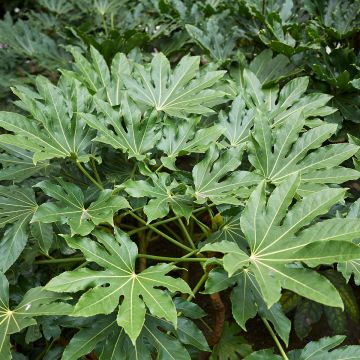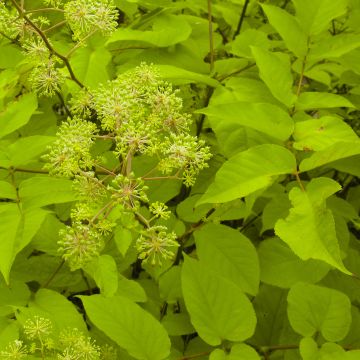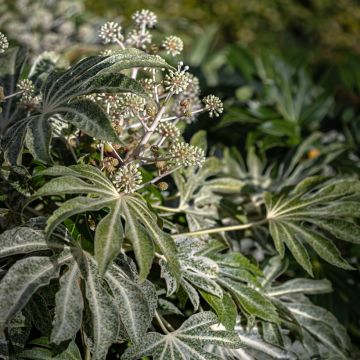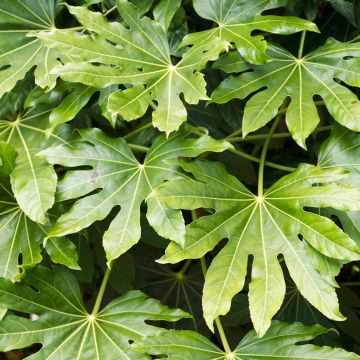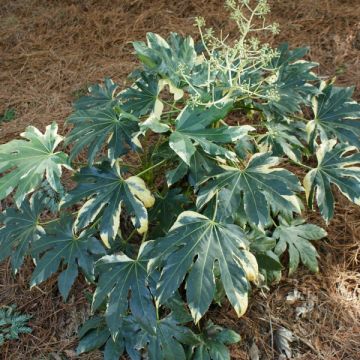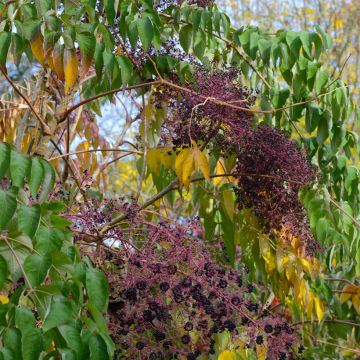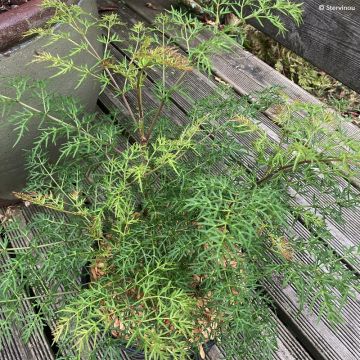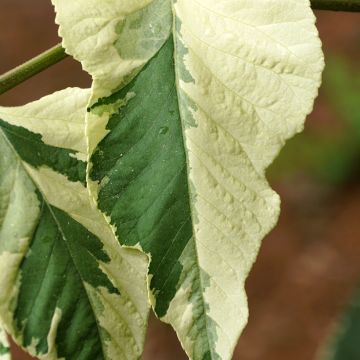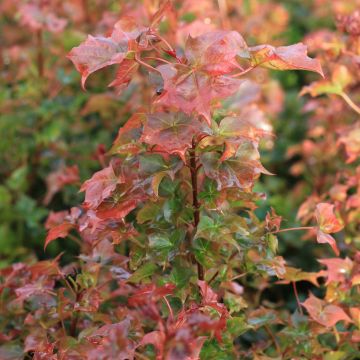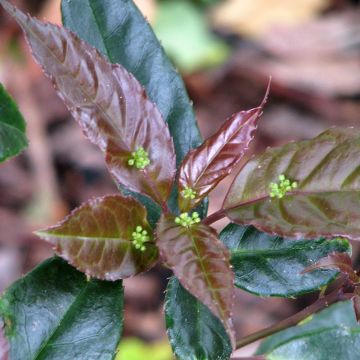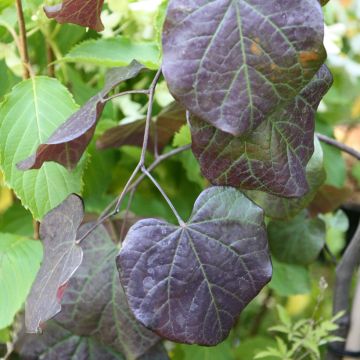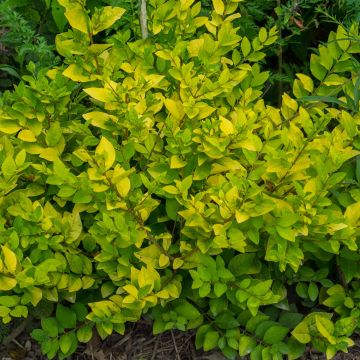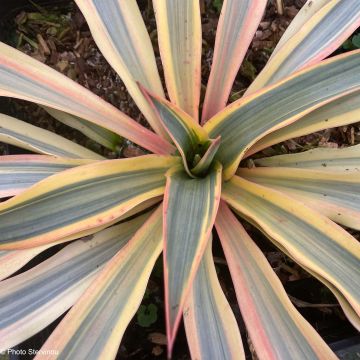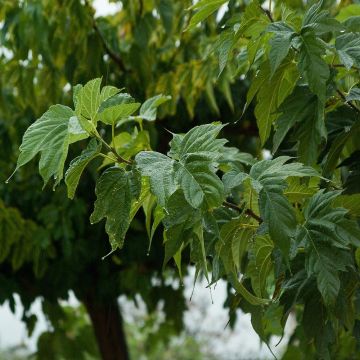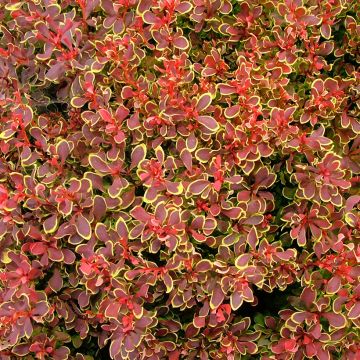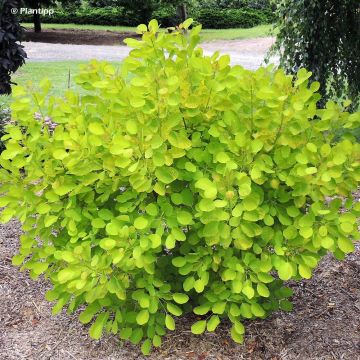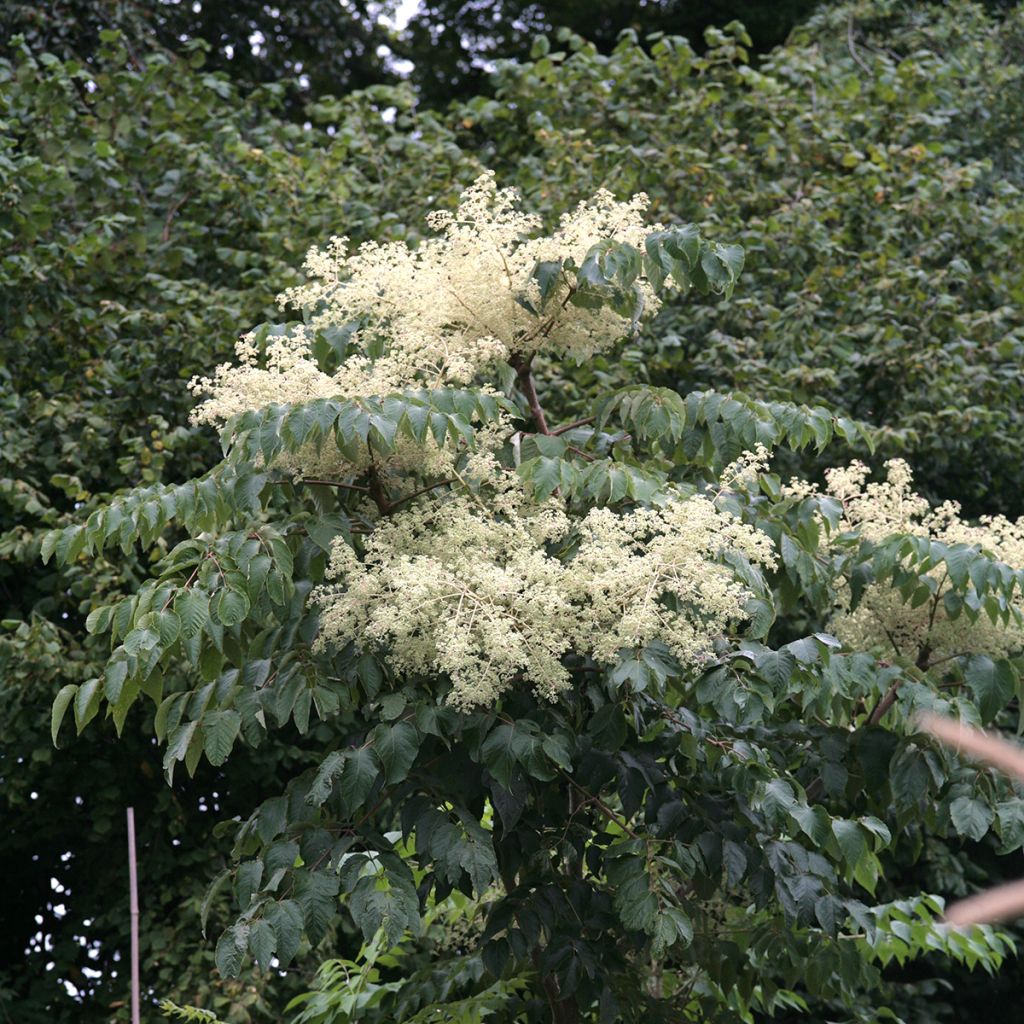

Aralia elata Golden Umbrella
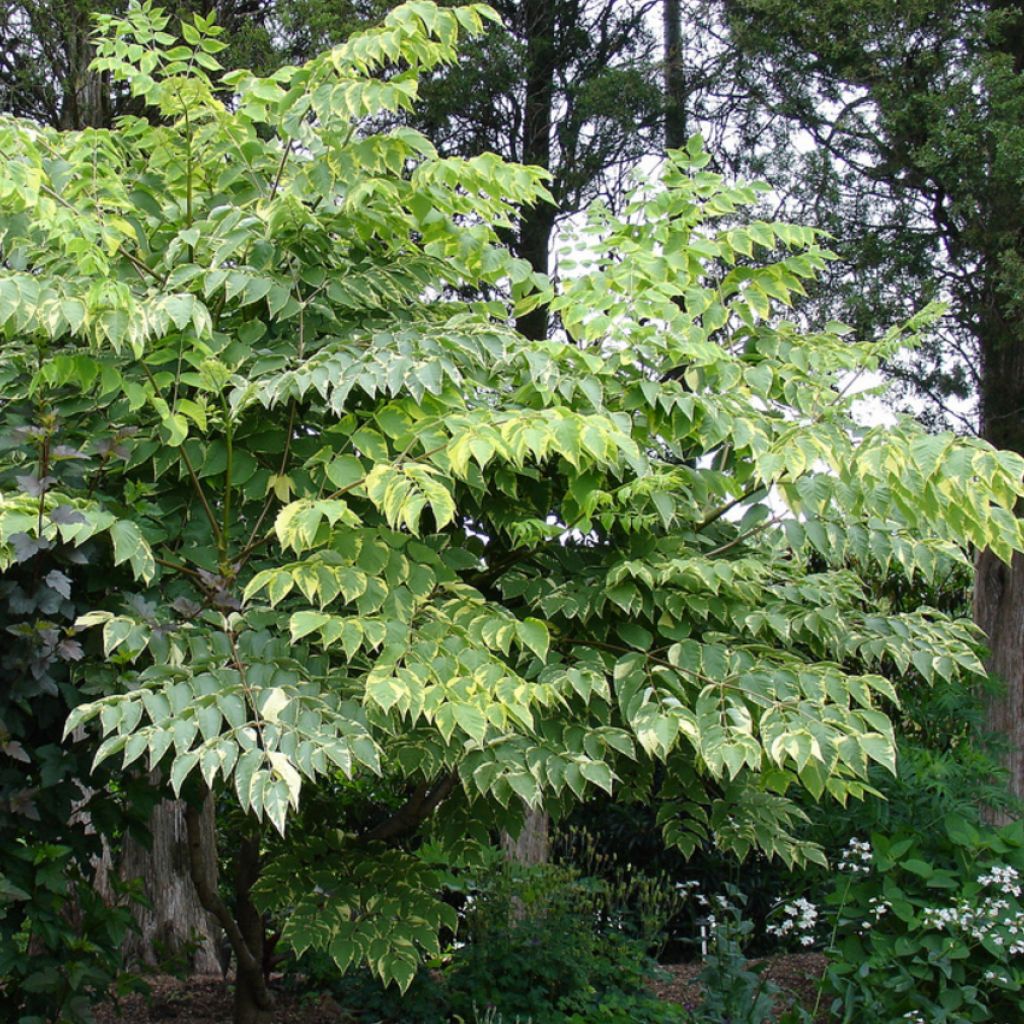

Aralia elata Golden Umbrella
Aralia elata Golden Umbrella
Aralia elata Golden Umbrella
Japanese Angelica Tree, Devil's Walking Stick
Beautiful specimen but with a lot of imagination upon reception because the foliage is late and the variegated character does not appear until the end of April. Bush resistant to various climate changes. Waiting for its full bloom.
Nathalie F., 11/07/2020
Special offer!
Receive a €20 voucher for any order over €90 (excluding delivery costs, credit notes, and plastic-free options)!
1- Add your favorite plants to your cart.
2- Once you have reached €90, confirm your order (you can even choose the delivery date!).
3- As soon as your order is shipped, you will receive an email containing your voucher code, valid for 3 months (90 days).
Your voucher is unique and can only be used once, for any order with a minimum value of €20, excluding delivery costs.
Can be combined with other current offers, non-divisible and non-refundable.
Why not try an alternative variety in stock?
View all →This plant carries a 24 months recovery warranty
More information
We guarantee the quality of our plants for a full growing cycle, and will replace at our expense any plant that fails to recover under normal climatic and planting conditions.


Would this plant suit my garden?
Set up your Plantfit profile →
Description
Aralia elata Golden Umbrella or Aureovariegata, also known as the Japanese Angelica Tree or Variegated Japanese Aralia, is an unusual bush with a sleek shape that brings an exotic, Japanese-style charm to any garden. It forms a small, lightly branched parasol with multiple trunks, adorned with grey bark and large, deeply cut leaves that are widely and irregularly variegated with pale yellow. In late summer, the leaves take on silvery tones and in autumn they turn into sumptuous shades of yellow with hints of purple. This marvellous species also produces large, creamy-white, fluffy and fragrant umbels in late summer, followed by shiny blue-black fruits. Over time, it establishes its elegant presence, deserving pride of place in the garden. Plant in any ordinary soil, whether in shade or sunlight.
The Japanese Angelica Tree belongs to the Araliaceae family. It is native to Japan and northeastern Asia. It is a bush with a spreading habit that can reach a height of 4 to 5m (13 - 16 ft ), or even 10m (33 ft) in certain regions, with a mature spread exceeding 5m (16 ft). The 'Aureovariegata' variety is distinguished by its smaller size and magnificent variegated foliage of green and pale yellow. Young plants grow on a single trunk, with leaves only at the top, but as they age more and more lateral branches appear. The bark is grey, in small spiky plates. These spines can also be found on the branches. The leaves are deciduous and compound, sometimes reaching 60cm (24 in) in length. They are divided into numerous narrow and pointed leaflets that bear small spines on the petiole. Flowers appear in late summer and last for several weeks. They are tiny, creamy-white dots gathered in a delicate, fragrant panicle, resembling a buzzing mist of bees hovering above the foliage. They are grouped in a flexible panicle measuring 20 to 40cm (7 - 16 in) in length. Small blackish fruits, highly sought after by birds, follow the flowers. Aralia elata tends to spread through suckers and forms clumps, earning it the nickname "the walking tree".
This is a beautiful bush that can withstand cold, shade, and sunlight, and adapts well to most soil types. Its highly ornamental foliage deserves protection from strong winds to preserve its beauty. Once established, it looks stunning as a solitary plant on a lawn or grouped together to form a cluster. Add interest by combining it with trees and shrubs that also appreciate moist to wet soils, such as alder buckthorn, rosemary-leaved willow, and guelder rose. In a more exotic setting consider pairing with other beautiful Asian plants, such as caramel tree, Japanese maple, Fatsia, or Arisaema. The reflection of its snow-white and silver form in a pond in September is a stunning and evocative sight. The only precaution to take, given its sharp spines, is to keep young children away from it.
Aralia elata is also a medicinal plant. Its berries and bark contain an anti-inflammatory extract used in medicine. The bark is used particularly in herbal medicine.
Report an error about the product description
Aralia elata Golden Umbrella in pictures
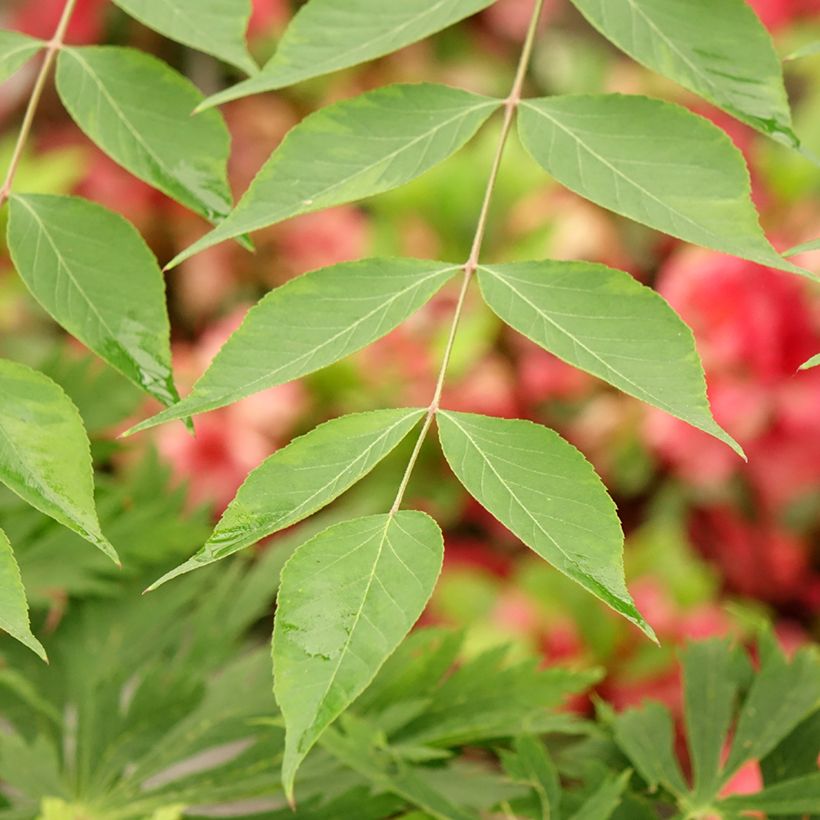

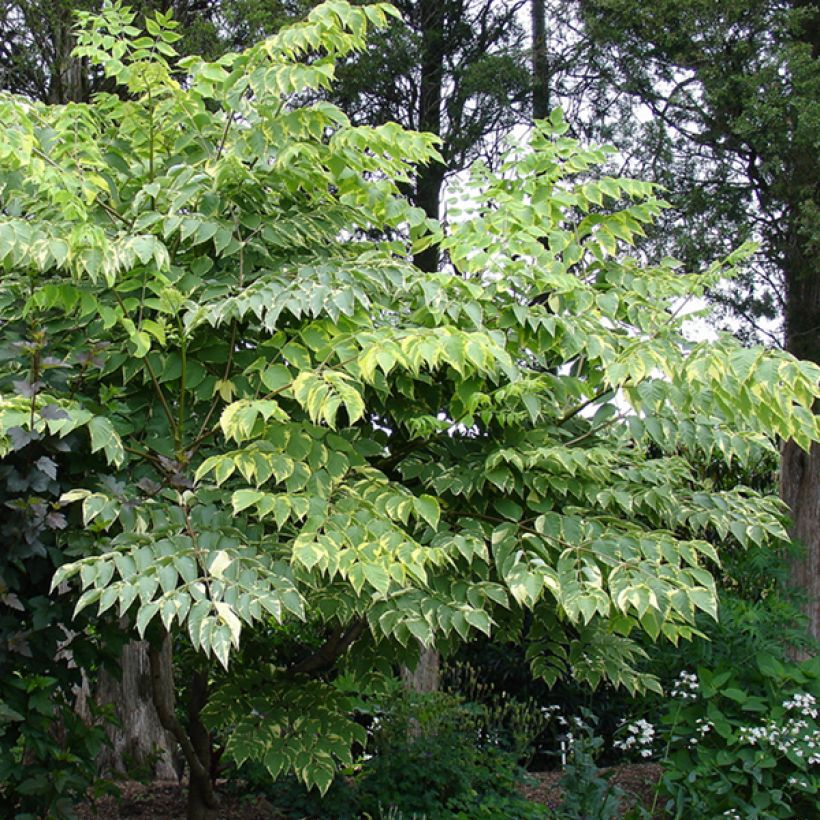

Plant habit
Flowering
Foliage
Botanical data
Aralia
elata
Golden Umbrella
Araliaceae
Japanese Angelica Tree, Devil's Walking Stick
Aralia elata (Aureovariegata)
Cultivar or hybrid
Other Aralia
View all →Planting and care
Aralia elata Aureovariegata prefers partial shade or morning sun, but it also tolerates shade. Care must be taken to shelter it from strong or drying winds to spare its ornamental foliage. This bush thrives in cool to moist, fertile, neutral to slightly alkaline soil, but it seems that poor soil produces hardier subjects with greater longevity. It is not picky about soil type and easily adapts to any ordinary, deep, well-drained, and not too dry soil. This small tree sometimes tends to produce suckers, without being invasive. Simply remove the small suckers as soon as they appear.
Planting period
Intended location
Care
-
, onOrder confirmed
Reply from on Promesse de fleurs
Similar products
Haven't found what you were looking for?
Hardiness is the lowest winter temperature a plant can endure without suffering serious damage or even dying. However, hardiness is affected by location (a sheltered area, such as a patio), protection (winter cover) and soil type (hardiness is improved by well-drained soil).

Photo Sharing Terms & Conditions
In order to encourage gardeners to interact and share their experiences, Promesse de fleurs offers various media enabling content to be uploaded onto its Site - in particular via the ‘Photo sharing’ module.
The User agrees to refrain from:
- Posting any content that is illegal, prejudicial, insulting, racist, inciteful to hatred, revisionist, contrary to public decency, that infringes on privacy or on the privacy rights of third parties, in particular the publicity rights of persons and goods, intellectual property rights, or the right to privacy.
- Submitting content on behalf of a third party;
- Impersonate the identity of a third party and/or publish any personal information about a third party;
In general, the User undertakes to refrain from any unethical behaviour.
All Content (in particular text, comments, files, images, photos, videos, creative works, etc.), which may be subject to property or intellectual property rights, image or other private rights, shall remain the property of the User, subject to the limited rights granted by the terms of the licence granted by Promesse de fleurs as stated below. Users are at liberty to publish or not to publish such Content on the Site, notably via the ‘Photo Sharing’ facility, and accept that this Content shall be made public and freely accessible, notably on the Internet.
Users further acknowledge, undertake to have ,and guarantee that they hold all necessary rights and permissions to publish such material on the Site, in particular with regard to the legislation in force pertaining to any privacy, property, intellectual property, image, or contractual rights, or rights of any other nature. By publishing such Content on the Site, Users acknowledge accepting full liability as publishers of the Content within the meaning of the law, and grant Promesse de fleurs, free of charge, an inclusive, worldwide licence for the said Content for the entire duration of its publication, including all reproduction, representation, up/downloading, displaying, performing, transmission, and storage rights.
Users also grant permission for their name to be linked to the Content and accept that this link may not always be made available.
By engaging in posting material, Users consent to their Content becoming automatically accessible on the Internet, in particular on other sites and/or blogs and/or web pages of the Promesse de fleurs site, including in particular social pages and the Promesse de fleurs catalogue.
Users may secure the removal of entrusted content free of charge by issuing a simple request via our contact form.
The flowering period indicated on our website applies to countries and regions located in USDA zone 8 (France, the United Kingdom, Ireland, the Netherlands, etc.)
It will vary according to where you live:
- In zones 9 to 10 (Italy, Spain, Greece, etc.), flowering will occur about 2 to 4 weeks earlier.
- In zones 6 to 7 (Germany, Poland, Slovenia, and lower mountainous regions), flowering will be delayed by 2 to 3 weeks.
- In zone 5 (Central Europe, Scandinavia), blooming will be delayed by 3 to 5 weeks.
In temperate climates, pruning of spring-flowering shrubs (forsythia, spireas, etc.) should be done just after flowering.
Pruning of summer-flowering shrubs (Indian Lilac, Perovskia, etc.) can be done in winter or spring.
In cold regions as well as with frost-sensitive plants, avoid pruning too early when severe frosts may still occur.
The planting period indicated on our website applies to countries and regions located in USDA zone 8 (France, United Kingdom, Ireland, Netherlands).
It will vary according to where you live:
- In Mediterranean zones (Marseille, Madrid, Milan, etc.), autumn and winter are the best planting periods.
- In continental zones (Strasbourg, Munich, Vienna, etc.), delay planting by 2 to 3 weeks in spring and bring it forward by 2 to 4 weeks in autumn.
- In mountainous regions (the Alps, Pyrenees, Carpathians, etc.), it is best to plant in late spring (May-June) or late summer (August-September).
The harvesting period indicated on our website applies to countries and regions in USDA zone 8 (France, England, Ireland, the Netherlands).
In colder areas (Scandinavia, Poland, Austria...) fruit and vegetable harvests are likely to be delayed by 3-4 weeks.
In warmer areas (Italy, Spain, Greece, etc.), harvesting will probably take place earlier, depending on weather conditions.
The sowing periods indicated on our website apply to countries and regions within USDA Zone 8 (France, UK, Ireland, Netherlands).
In colder areas (Scandinavia, Poland, Austria...), delay any outdoor sowing by 3-4 weeks, or sow under glass.
In warmer climes (Italy, Spain, Greece, etc.), bring outdoor sowing forward by a few weeks.






























